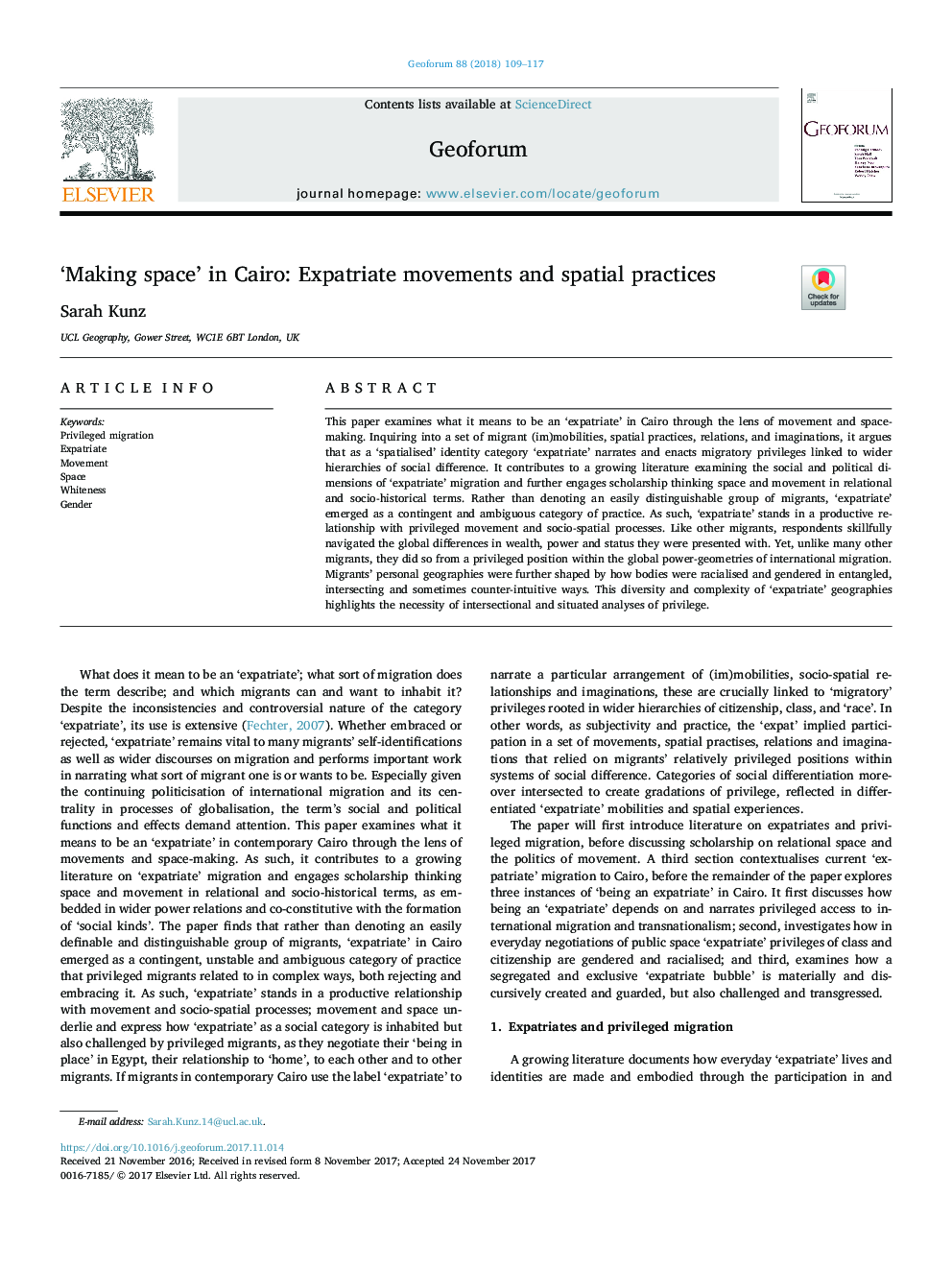| Article ID | Journal | Published Year | Pages | File Type |
|---|---|---|---|---|
| 7353903 | Geoforum | 2018 | 9 Pages |
Abstract
This paper examines what it means to be an 'expatriate' in Cairo through the lens of movement and space-making. Inquiring into a set of migrant (im)mobilities, spatial practices, relations, and imaginations, it argues that as a 'spatialised' identity category 'expatriate' narrates and enacts migratory privileges linked to wider hierarchies of social difference. It contributes to a growing literature examining the social and political dimensions of 'expatriate' migration and further engages scholarship thinking space and movement in relational and socio-historical terms. Rather than denoting an easily distinguishable group of migrants, 'expatriate' emerged as a contingent and ambiguous category of practice. As such, 'expatriate' stands in a productive relationship with privileged movement and socio-spatial processes. Like other migrants, respondents skillfully navigated the global differences in wealth, power and status they were presented with. Yet, unlike many other migrants, they did so from a privileged position within the global power-geometries of international migration. Migrants' personal geographies were further shaped by how bodies were racialised and gendered in entangled, intersecting and sometimes counter-intuitive ways. This diversity and complexity of 'expatriate' geographies highlights the necessity of intersectional and situated analyses of privilege.
Related Topics
Social Sciences and Humanities
Economics, Econometrics and Finance
Economics and Econometrics
Authors
Sarah Kunz,
